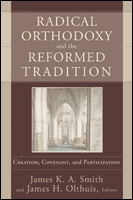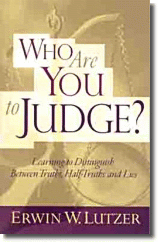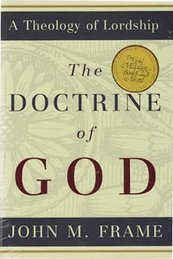Lent 2006 (1 March-16 April)
We are in the season of Lent again. For many in charismatic churches or non-traditional church, the word "Lent" is as strange as it can be! Is it the past simple and past participle of "lend"?? No... ... It has nothing to do with lending others things. Lent originally meant no more than the spring season. The name "Lent" comes from the Germanic (one of the branches of the Indo-European language family) root for spring. Initially the word simply meant spring, but later became associated with the fast. The name change occurred in the late Middle Ages as Catholic sermons were spoken in vernacular instead of Latin.
Basically, Lent is just a word employed to denote the forty days' fast (btw Ash Wednesday, excluding Sundays, & Easter Sunday) preceding Easter. The period of Lent recalls the forty days of our Lord's temptation. It is a season of penitence and fasting in preparation for Easter (Resurrection of the Lord Jesus Christ). ... a season for reflection and taking stock. It is a time of prayer and fasting in memory of our Lord's passion and death . However, as the subtitle of a CT article suggest, "Evangelical Protestants are caught between freedom in Christ and sacred observance". The Lenten Season reminds us that we have been over-indulgent, and that it would be an excellent idea to place ourselves under some kind of spiritual and physical discipline. However, do we really need a more rugged Christian discipleship during this period? Hasn’t the Anabaptists got rid of all Christian holy days.
We know that the word "Lent" nowhere appears in the NT. The same can be said of words "trinity", "providnece", etc.. Lent is also nowhere observed as a sacred season in the New Testament; hence it must be a development of later Church tradition. The same may be said, of course, of Christmas and Easter. ... The reowned preacher Charles Spurgeon said from the pulpit of the Metropolitan Tabernacle in 1871 that he certainly did not believe in the present ecclesiastical arrangement called christmas and spoke of his abhorrence of the mass from which its name derives, but now the bible-believing churches have taken leave of their sense of righteousness and holiness and absorbed this Roman pagan festival into their worship.
Biblical Basis??
As if to forewarn against such eventualities, Paul specifically cautions the Galatians against observing "days, and months, and times, and years," and against returning in bondage to "the weak and beggarly elements." (Galatians 4:9) The NASB calls it "the weak and worthless elemental things". Still, what is this "the weak and beggarly elements"? It denote that state of religious knowledge existing among the Jews before the coming of Christ, the rudiments of religious teaching. They are "of the world," because they are made up of types which appeal to the senses. They are "weak," because insufficient; and "beggarly," or "poor," because they are dry and barren, not being accompanied by an outpouring of spiritual gifts and graces, as the gospel is.
According to the Notes on Galatians 4:9 from the Original 1599 Geneva Bible Notes, "they are called impotent and beggarly ceremonies, being considered apart by themselves without Christ: and again, by that means they gave good testimony that they were beggars in Christ, for when men fall back from Christ to ceremonies, it is nothing else but to cast away riches and to follow beggary."
But now that you have come to know God, or rather to be known by God, how is it that you turn back again to the weak and worthless elemental things, to which you desire to be enslaved all over again? (Galatians 4:9, NASB)
Why then should not evangelical Christians forget about Lent altogether, and "stand fast in the liberty wherewith Christ hath made us free"? Why not stand alone in blazing nonconformity, and love God, and do as we please? So, Why doesn’t my church observe Lent? (Ken Collins has an interesting article on this.) Is Lent a Catholic observance? Pope Benedict XVI marked the beginning of this year's Lent with an Ash Wednesday Mass at Rome’s Basilica of Santa Sabina. By doing so, the pope hope to renew an ancient Lenten tradition long held by the Diocese of Rome. Generally, Catholics believe that the faithful are to grow in their love of Jesus Crucified, and they are to practice extra penance for their own and other people's sins. However, is it really a case where "our Roman Catholic friends, who by and large take the Lenten season rather seriously, will smile gently at clumsy Protestant attempts to mark the occasion, and will murmur, "Father, forgive them, for they know not what they do.""??
-------
Historically … …
The Reformed View
Historically, how do the Reformed Churches view these so called holy days?? Generally speaking, the Reformers such as Calvin, Farel, Viret, Bucer and John Knox were opposed to observing holy days such as Christmas, Easter, etc.. As they have no warrant in the word of God, they are not to be observed.The Reformers reasoned that the holy days were not divine but human institutions. They feel that the holy days brushed aside the importance of Sunday, and gave occasion to licentious and heathen festivities. The Reformers prefered the preaching of the facts of Christ's birth, death, etc. to be done on regular Sundays. For example, on the Sunday before Christmas the Christmas story was preached, etc.
In the General Meeting (1889) of the Reformed Presbyterian Church (Covenanter), a concern was also raised: The Protestant Church is fast returning to the heathen ceremonies of the Church of Rome, vieing with her in the observance of "Easter Sunday," etc. By means of Christmas trees, Santa Claus is becoming a greater reality and the object of more affection to children than the Saviour himself. --Reformed Presbyterian Church (Covenanter), Minutes of the General Meeting (1889).
G. I. Williamson (minister, Orthodox Presbyterian Church),in his On the Observance of Sacred Days (n.d.)., said that: Christmas, Good Friday, and Easter are Romish sacred days. By this we mean that they have their source in Roman Catholic tradition, rather than in Scripture. . . . [T]here have been times in the history of the Reformed churches when the truth on the subject of sacred days received reverent attention. Already, before John Calvin arrived in Geneva at the time of the great Reformation, the observance of Romish sacred days had been discontinued there. This had been done under the leadership of Guillaume Farel and Peter Viret. But Calvin was in hearty agreement. It is well known that when these traditional days came along on the calendar, Calvin did not pay the slightest attention to them. He just went right on with his exposition of whatever book of the Bible he happened to be expounding. The Reformers, Knox and Zwingli, agreed with Calvin. So did the entire Reformed church of Scotland and Holland. At the Synod of Dort in 1574 it was agreed that the weekly Sabbath alone should be observed, and that the observance of all other days should be discouraged. This faithful Biblical practice was later compromised. But that does not change the fact that the Reformed churches originally stood for the biblical principle. The original stand of the Reformed churches was Scriptural. That is the important thing.
Gordon H. Clark (professor, Covenant College, Reformed Presbyterian Church, Evangelical Synod),in The Holy Spirit (1993), too commented: It is amazing that a professor in a Presbyterian seminary should be so Romish and anti-Reformed. ... Now, Scripture does not authorize us to celebrate Pentecost. The same is true of Christmas. It began as a drunken orgy and continues so today in office parties. The Puritans even made its celebration a civil offense. And yet an argument for celebrating Pentecost was, "Don't all Christians celebrate Christmas and Easter?" No, they do not. My father's family and church never celebrated Christmas, nor did the two Blanchard administrations in Wheaton College. But what about Easter? Surely we must celebrate Easter, shouldn't we? Yes indeed, we should, as the Scripture commands, not just once a year in the spring, but fifty-two times a year.
-------
Indeed, non-Catholics should not dismiss Lent altogether. Just as every Sunday should be Easter, everyday should be Lent. Certain Scripture passages (Eccl. 3:1; Luke 22:19; Acts 20:16, and so forth) has also indicated that the Christian's observance of certain sacred periods is not wholly inappropriate. A basis for such observance may even be found in the divine order of Creation (Gen. 2:1 ff.). Surely it is not by accident that God established a rhythm in the universe, so evident in the natural order. Man is part of his universe; and just as our Lord had his seasons of prayer upon the mountain, so it is meet for us to spend time in contemplation of our Saviour and of his vicarious sacrifice in our behalf. And what better time is there for such sustained reflection than during the sacred days prior to the celebration of His resurrection?
Despite it perceived Catholic "connection", I believe that Lent still has its relevance. Rather than a time of rituals, or useless external religous observances, Lent can become a time when material things are put again in their proper secondary position; when we see in the spiritual the unconquerable forces of life. It can become a time of self-examination, when we reflect upon our present position in the pilgrimage and check our directions. It can become a time of personal readjustment, not through mental resolutions to do better but through yielding ourselves afresh to the God who demands to be obeyed. And it can become a time when, by following the battered path to Calvary, we identify ourselves once again with the Saviour who makes all things new.
However, unlike Christmas (with its Christmas tree and Santa Clause) and Easter (with its Bunny & Chocolates), Lent has not been very popular. But, as one Anglican bishop commented, the comparative lack of popular appeal that Lent exerts is not so surprising. At the heart of the “self help” culture is the picture of an individual consumer operating on his own profile and image to produce a more attractive figure. If such a person takes up religion, he tends to look on God as an asset in this process. For me, I think I have learnt that God promises new life to those who open themselves up to Him, who pass through the way of the cross, emptying themselves, so that they can be filled with the life that flows from the Godhead. Though we might have not noticed, God has become a peripheral to many of us Christians.
For me, Lent has been a period of special importance to me. Don't know if it is a coincidence..., but numerous difficulties I faced happened during the period of Lent. In 2001, 2002, 2005 and this year, I saw again and again the miraculous working of God in my life. Something that could not be explained in words happened. Non-christians have witnessed how "I" overcome this difficulty, but they do not know it was the miraculous act of God. They have asked, "How did you do it? How did the sudden improvement occur?". But deep inside, I know it was God, for the change was too great and too fast. For non-Christians (sadly, even for some Christians), miracles is something reserved for the non-interlectual, charistmatics or superstitious. They say, if we do not put in effort, will God help us? If we do not work, will God feed us? I used to believe that God only help those who help themselves. But, I have since learnt that this is not true. Instead, I've came to the conclusion that "God only help those who places their trust in Him.
For me, through the various difficulties which I faced during Lent, Lent has become a period of significance to me. Lent has become a time where I come to experience indepth the sufferings of our Lord Jesus Christ. For me, Lent is a time to recount the steps of Jesus to the cross culminating in the celebration of the resurrection on Easter Sunday. I've learned to believe (in contrast to my previous "say only") that the God who died to save us would not leave us alone to fend for ourselves. During 2005's trial, I found my faith strengthened. This year hasn't been too smooth sailing too either. But, as one Anglican Bishop wrote, "The promise of Easter is new life through the cross and resurrection of Jesus Christ but Christians have always been aware that there is an undertow in daily life that carries us away into negativity and forgetfulness. Our lives become old again. We need an annual review." We need to be constantly reminded that though we work to earn our gain, God alone is our provider!
Fasting help us to live more frugally and simply in order to tighten the drum-skin so that God’s beat can be heard more clearly in our lives. During Lent, fasting has become a part of this spiritual walk for many, but for me, despite the usefulness of fasting, Lent was more than these externals.
Christianity is right to offer a general invitation to all people to follow Christ. It is good that the threshold at the way into the Church is so low. Thereafter, however, the "demands" increase and we learn the cost of accepting the invitation to identify with Christ. The Christian life is not without its difficulties, but in our difficulties, we have Christ! I have something asked myself what is the source of these difficulties. Is it a result of trying to please my own needs and wants? I've learnt (& still learning) to ask myself whether I possess more zeal to please my own needs and wants, or to please others, than I have to please the living God.
"Stand fast in the faith, quit you like men, be strong." --1 Corinthians 16:13.
Last of all, I believe that trials and tribulations are not without its purpose. In my difficulties, I'm remindered that Jesus' trials and sufferings were even greater.... much greater. ... and His trials and sufferings were for us! As I struggle with the difficulties of life, I am comforted by the Lord's reminder that "Men ought always to pray and not to faint." (Luke 18:1.)
"Lord, what wilt Thou have me to do?" -- Acts 9:6.
Prayer is "the time-exposure of the soul" to God. As one theologian puts it, we do not pray so that God can hear us, BUT we pray so that we can hear what God is saying to us!!
And so, my prayer is this: Our Father in heaven,I claim Thy promise through faith in Thee and Thy Son, the Lord Jesus Christ. Give me courage to maintain that faith, help me to renew my faith in Thee daily, and to share it with those with whom I live and work. AMEN.
Worship During Lent
According to the The Worship Sourcebook (pp. 551-552),
Lent invites us to make our hearts ready for remembering Jesus’ passion and celebrating Jesus’ resurrection. ... As a period of preparation, Lent has historically included the instruction of persons for baptism and profession of faith on Easter Sunday; the calling back of those who have become estranged from the church; and efforts by all Christians to deepen their piety, devotion, and readiness to mark the death and resurrection of their Savior. As such, the primary focus of the season is to explore and deepen a “baptismal spirituality” that centers on our union with Christ rather than to function only as an extended meditation on Christ’s suffering and death.
Some Thoughts:
If our faith was composed of things like bricks or glass, or straw, what a paltry thing it would be. But our faith is in God, who was there "In the beginning, God." And when the Lord said, "Let there be . . .", God made the earth, the sky and stars, and the life upon the earth. "Faith is the victory that overcomes the world."
.... ... "Not my will, but Thine be done."
"We are not as much interested in what we can get from God in the act of prayer, but more what God can do with and through us. Our interest is not so much in obtaining but in surrendering and submitting, Prayer, understood in this way, is prayer as Christ understood it and practiced it."
-------
Some References used:
The Worship Sourcebook (Faith Alive Christian Resources, Baker Books, Calvin Institute of Christian Worship, 2004)
CT Classic article. The Challenge of the Lenten Season: Evangelical Protestants are caught between freedom in Christ and sacred observance.(This article originally appeared in the March 14, 1960, issue of Christianity Today.)
Anglican Diocese of London. Give up something - take on more, 08/02/05




